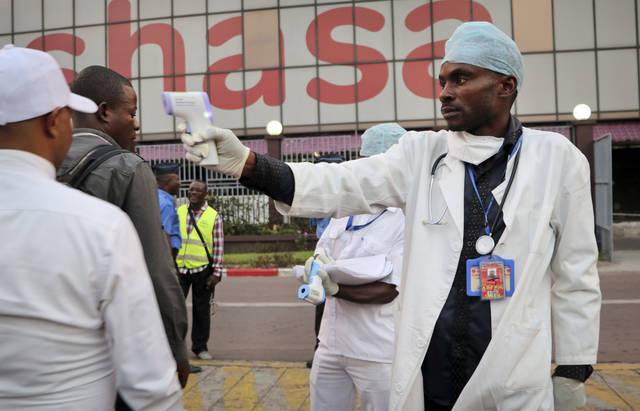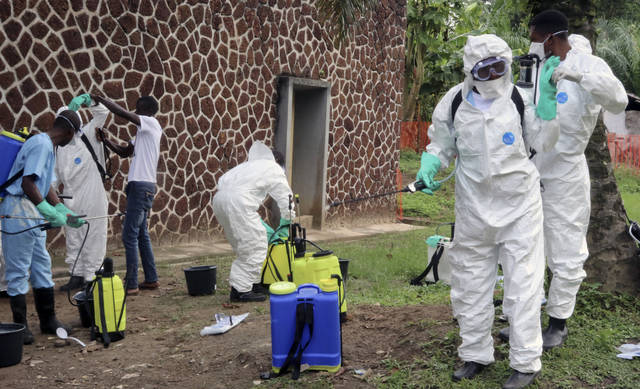KINSHASA, Congo — Congo’s latest outbreak of the deadly Ebola virus is over, the health ministry announced Tuesday, after a speedy response to limit its spread in remote rural areas and a city of more than 1 million people.
Health experts said the use of a still-experimental vaccine on more than 3,300 people was a major factor in containing the outbreak, Congo’s ninth since the hemorrhagic fever was first identified in 1976.
There were 54 Ebola cases, including 33 deaths, in the outbreak that was declared in early May in northwest Equateur province, the health ministry said.
“Although the scale of the crisis we were facing was unprecedented, the speed and effectiveness of the response put in place by the government and its partners were also exceptional,” Health Minister Dr. Oly Ilunga Kalenga said.
The outbreak posed a serious challenge when it spread to the city of Mbandaka and its more than 1 million residents. The other initial cases were in hard-to-reach rural areas without basic infrastructure such as electricity, making the vaccination efforts more difficult.
“From the start, we had prepared for the worst of scenarios,” the health minister said. “And our fears were quickly confirmed” with the spread to Mbandaka early on in the outbreak.
The city sits on the heavily traveled Congo River upstream from the capital, Kinshasa, and its 10 million residents. There were concerns the virus would spread not only within the country but to neighboring nations including Central African Republic.
The outbreak was declared over after a 42-day observation period, equaling two 21-day incubation periods, with no new confirmed cases recorded.
“It’s a great relief for us,” said Dominique Ekila, a 44-year-old resident of Kinshasa. “Since May, I had stopped traveling to Equateur province to sell fish … With this announcement I will soon plan my next trip.”
Esther Mavinga, who sells vegetables in Kinshasa, said she was grateful the outbreak was over.
“We were very worried that this epidemic would come to Kinshasa. The God we prayed to heard our prayers and spared us,” she said.
There is no specific treatment for Ebola, which is spread via contact with the bodily fluids of those infected, including the dead. Symptoms include fever, vomiting, diarrhea, muscle pain and at times internal and external bleeding. The virus can be fatal in up to 90 percent of cases, depending on the strain.
The World Health Organization, which played a major role in the outbreak response and delivery of the vaccines, congratulated Congo.
Dr. Ibrahima Soce Fall, the agency’s regional emergencies director in Africa, called the response vastly improved after the devastating Ebola outbreak in West Africa that killed more than 11,300 people from 2014 to 2016. WHO, criticized for its slow response, went through a “profound reform” after that, he said.
The same day the latest outbreak was declared, WHO was able to release $2 million allocated for the initial response and international teams were able to deploy quickly in a coordinated effort, Fall said.
But Dr. Stacey Mearns, senior health coordinator of the International Rescue Committee’s emergency response team, warned against too much celebration.
“It’s always good to see the end of an outbreak, but it’s certainly not the end of Ebola in Congo. Ebola is endemic here,” she said.
———
Petesch reported from Dakar, Senegal.
———
Follow Africa news at https://twitter.com/AP—Africa






